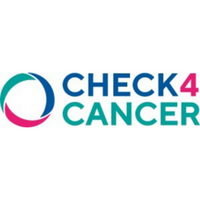Effective cancer screening can help ease employee fears
Cancer screening is now established as one of the most highly valued employee benefits and can be delivered as a flexible benefit, as a company-funded campaign, or as part of a risk-stratified cancer screening programme.
In principle, cancer screening tests should be available to the population to detect specific cancer at an earlier stage where treatment will lead to a better outcome.
Cancer screening is therefore a crucial component of any early cancer detection programme but how do you know if your cancer screening test ticks all these boxes?
National cancer screening programmes
At present there are NHS screening programmes for breast (mammography), cervical (HPV test) and bowel cancer (FIT test) that are based on established and validated screening tests.
The National Screening Committee has already recommended low dose CT scanning for lung cancer screening and, although men aged 50 or over can currently access PSA testing via their GP, the recently launched TRANSFORM study should identify the best way to screen men for prostate cancer and lead to a national screening programme in the UK.
Skin cancer screening also picks up early skin cancers, leading to better outcomes as well as survival in the case of melanoma.
Are blood tests effective?
There are however a number of screening tests that in my opinion do not fulfil the criteria outlined above.
For example, there is currently no effective screening test for ovarian cancer. CA 125 is an ovarian cancer marker used to monitor response to treatment but should not be used for screening.
Also, CEA is a protein that may be elevated in bowel cancer patients but it is not an effective cancer screening test.
Finally, while infection with H. pylori does increase the risk of stomach ulcers and gastric cancer, there is no evidence that it is an effective screening tool.
Multi-early cancer detection tests
I often get asked if there is a single blood test that can screen for multiple cancers and, sadly I do not think we are yet at that stage.
There are a number of so-called multi-early cancer detection (MECD) tests now being promoted. One such procedure is the Galleri test which has been offered to NHS patients aged 50-77 as part of a three-year screening trial since August 2021.
Like many scientists, I was puzzled when this trial was launched given the absence of published data showing that it could detect large numbers of common cancers at an early stage.
The main trial outcome being assessed is the reduction in late stage (3 and 4) cancers diagnosed. Although final results are not due until 2026, it is telling that based on results from the first year of the study, the NHS recently declared that they do not justify moving to a large-scale NHS pilot programme.
My take home message is to ensure that your employees have access to effective and validated cancer screening tests delivered by a trusted provider who can reassure you that they evidence-based and effective.
Supplied by REBA Associate Member, Check4Cancer
Check4Cancer offers corporate health screening for different types of cancer.








